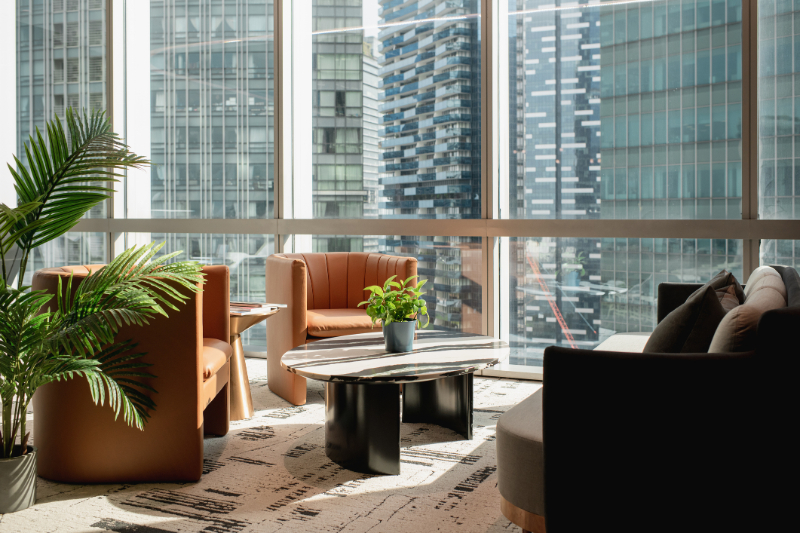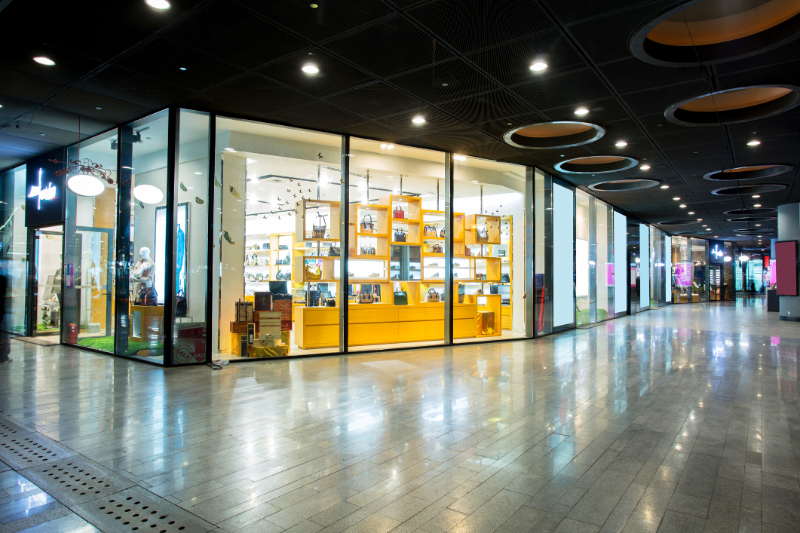If you are in the market to lease or sell commercial real estate in Sarasota, FL, then you’re at a great advantage.
Here, in the vibrant city of Sarasota, we find ourselves amidst a landscape of opportunity and prosperity. Nestled along the southwestern coast of Florida, Sarasota basks in the balmy embrace of the Sunshine State’s renowned climate and picture-perfect beaches.
As one of the state’s principal commercial hubs, Sarasota offers a wealth of opportunities for investment and growth. Key commercial areas such as Downtown Sarasota, Sarasota-Bradenton International Airport corridor, and the bustling district of Lakewood Ranch exemplify the city’s vibrant business environment.
The perfect backdrop. You think this guarantees a successful sale? Think again.
In the realm of commercial real estate, the allure of a property is paramount, especially when targeting discerning commercial property buyers in search of the perfect place to grow their business.
First impressions matter. A property’s appeal serves as the initial point of contact, influencing buyers’ perceptions and shaping their decision-making process. From the moment a buyer sets foot on the premises or views an online listing, they form an impression that can ultimately make or break a deal.
For commercial property sellers, investing time and effort to enhance their property’s appeal is not merely a suggestion—it’s a strategic imperative.
Table of Contents:
- 7 Tips To Win Over Commercial Property Buyers
- 1. Enhance curb appeal through landscaping and exterior improvements.
- 2. Ensure the property is well-maintained and in good condition, making necessary repairs and upgrades to modernize the space.
- 3. Highlight the property’s strategic location, accessibility, and proximity to amenities, transportation, and infrastructure
- 4. Stage the interior and showcasing the versatility of the space to help buyers envision their own business in its place.
- 5. Emphasizing energy efficiency and sustainability features of the property
- 6. Providing clear information about zoning and potential usage options
- 7. Offer Competitive Lease or Sale Terms to Attract Potential Buyers
- Get Expert Commercial Real Estate Guidance In Sarasota
7 TIPS TO WIN OVER COMMERCIAL PROPERTY BUYERS
1. Enhance curb appeal through landscaping and exterior improvements.
The exterior appearance of your property sets the tone for the entire viewing experience and can significantly influence commercial property buyers’ perceptions.
-
Create a welcoming entrance
The entrance creates a first and lasting impression for the entire property. Ensure that it is clean, well-maintained, and visually appealing. Consider adding potted plants, seasonal flowers, or decorative elements to create a welcoming atmosphere. -
Focus on greenery
Incorporating greenery can breathe life into your property and make it more inviting. Planting trees, shrubs, and flowers can soften the building’s exterior, add color, and create a sense of tranquility. -
Maintain lawns and hardscaping
Keep lawns neatly trimmed, and ensure that walkways, driveways, and parking areas are free of debris and in good repair. Repair any cracks or damage to hardscaping elements such as sidewalks or retaining walls to enhance safety and aesthetics. -
Add lighting
Outdoor lighting not only enhances safety and security but also adds visual interest to your property, especially at night. Consider installing path lights, accent lights, or architectural lighting to highlight key features of the building and create a welcoming ambiance. -
Upgrade signage and branding
Your signage is often the first point of eye-contact for potential buyers. Ensure that it is well-maintained, visible, and reflective of your brand identity. Consider upgrading to modern signage or adding landscaping elements around signage to draw attention. -
Invest in professional landscaping services
While DIY landscaping can be tempting, hiring professionals offers several benefits. Professional landscapers have the expertise, resources, and equipment to design and maintain landscapes that enhance curb appeal effectively. They can also provide valuable recommendations tailored to your property’s unique features and budget constraints.

2. Ensure the property is well-maintained and in good condition, making necessary repairs and upgrades to modernize the space.
Commercial property buyers are naturally drawn to properties that are meticulously cared for, as they signify reliability, durability, and value. Points to consider:
-
Safety and functionality
Buyers prioritize safety and functionality when considering commercial properties. Ensuring that essential features such as electrical systems, plumbing, heating, and cooling are in good working order is essential. Regular inspections and maintenance of these systems can prevent costly repairs and assure buyers of the property’s reliability. -
Aesthetic appeal
The appearance of the property’s interior spaces significantly influences buyers’ perceptions. Areas such as lobbies, common areas, and individual units should be well-maintained, clean, and inviting. Fresh paint, updated flooring, and modern fixtures can enhance the aesthetic appeal of these spaces and make a positive impression on buyers. -
Structural integrity
Buyers are wary of investing in properties with structural issues or deferred maintenance. Regular inspections by qualified professionals can identify any structural issues early on, allowing sellers to address them promptly. Repairing cracks, leaks, or other structural issues demonstrates a commitment to maintaining the property’s integrity and assures buyers of its long-term viability. -
Tenant satisfaction
For properties with existing tenants, maintaining the property’s condition is essential for tenant satisfaction and retention. Promptly addressing maintenance requests, conducting routine inspections, and investing in property upgrades can enhance the overall tenant experience and contribute to higher occupancy rates. -
Marketability
Well-maintained properties are more attractive to buyers and command higher prices in the market. Buyers are willing to pay a premium for properties that require minimal repairs and offer turnkey solutions. -
Compliance with regulations
Compliance with building codes and regulations is non-negotiable in the real estate industry. Sellers must ensure that their properties meet all applicable regulations and standards. This includes obtaining necessary permits, addressing safety hazards, and adhering to zoning requirements. -
Overall investment value
Ultimately, maintaining a property’s condition is an investment in its long-term value and profitability. Properties that are well-maintained attract higher-quality tenants, command higher rents or sale prices, and experience lower vacancy rates. -
Future-proofing the property
By making strategic upgrades, sellers can future-proof the property and adapt to evolving market demands. Anticipating tenants’ needs and preferences, such as flexible workspaces, smart technology integration, and sustainability features, ensures that the property remains competitive and relevant in the long term.
3. Highlight the property’s strategic location, accessibility, and proximity to amenities, transportation, and infrastructure
One of the most influential factors in commercial real estate is the property’s location, accessibility, and its proximity to essential services around the city. Commercial property buyers value locations that offer easy access for both customers and employees. Make sure to highlight these values when listing your property:
- Proximity to key destinations like the airport, nearest beach, downtown areas, tourist spots, etc.
- Accessibility to public transportation hubs, major roads networks, and interstate highways.
- Visibility from key vantage points and high foot traffic.
- Adaptability to market trends. Properties located in emerging or revitalizing neighborhoods may offer opportunities for redevelopment, expansion, or repositioning to capitalize on changing market dynamics.

4. Stage the interior and showcasing the versatility of the space to help buyers envision their own business in its place.
-
Highlight functional and flexible layouts
Emphasize the property’s flexible layout and floor plan, showcasing its potential to accommodate various business configurations and workflows. For example, if the space can be easily partitioned into smaller offices or opened up for collaborative work environments, highlight these features to appeal to a wide range of businesses, from startups to established corporations. -
Demonstrate multi-functional spaces
Showcase how different areas of the property can serve multiple functions to meet diverse business needs. For instance, a reception area that can double as a meeting space, or a warehouse with adaptable storage solutions that can also accommodate manufacturing or distribution operations. -
Maximize space perception
Proper staging techniques can make small or awkward spaces appear larger and more functional. Strategic placement of furniture, use of mirrors, and optimization of natural light can create a sense of spaciousness and flow within the property. -
Highlight key features and amenities
Staging allows sellers to draw attention to the property’s key features, amenities, and unique selling points. Whether it’s high ceilings, panoramic views, or state-of-the-art facilities, staging can accentuate these features and create focal points that capture buyers’ attention. -
Foster emotional connection
A well-staged interior evokes emotions and creates a connection with buyers on a subconscious level. By incorporating elements of warmth, style, and sophistication, sellers can appeal to buyers’ emotions and aspirations, making them feel emotionally invested in the property. -
Facilitate visualization
Staging helps buyers visualize how they can customize the space to suit their business needs and branding preferences. By presenting a curated and aspirational vision of the property, sellers inspire commercial property buyers to imagine the possibilities and envision themselves occupying the space.
5. Emphasizing energy efficiency and sustainability features of the property
In today’s environmentally conscious market, emphasizing energy efficiency and sustainability features of a commercial property is not just a trend; it’s a strategic advantage. Businesses increasingly prioritize sustainability in their operations, and properties that offer energy-efficient solutions and sustainable features are highly sought after.
-
Cost savings
Energy-efficient properties offer significant cost savings for buyers and tenants. Features such as LED lighting, energy-efficient appliances, HVAC systems, and insulation reduce energy consumption and utility costs, resulting in lower operating expenses over time. -
Environmental impact
Sustainable properties reduce environmental impact and carbon footprint, aligning with businesses’ corporate social responsibility initiatives and sustainability goals. Features such as solar panels, green roofs, rainwater harvesting systems, and low-flow plumbing fixtures minimize resource consumption and greenhouse gas emissions, contributing to a healthier planet. -
Long-term value
Energy-efficient and sustainable properties typically command higher rents or sale prices and experience lower vacancy rates in the market. Commercial property buyers are willing to pay a premium for properties that offer long-term value, resilience, and sustainability. -
Regulatory compliance
Increasingly stringent building codes, regulations, and sustainability standards require properties to meet minimum energy efficiency and sustainability requirements. Emphasizing the property’s compliance with these regulations assures buyers of its adherence to industry standards and mitigates potential risks associated with non-compliance. -
Enhanced tenant satisfaction
Sustainable properties offer a healthier and more comfortable indoor environment for tenants, resulting in higher tenant satisfaction and retention rates. Features such as natural daylighting, improved indoor air quality, and thermal comfort contribute to a more productive and enjoyable workplace experience for occupants. -
Competitiveness in the market
Properties with energy efficiency and sustainability features stand out in the market and set themselves apart from conventional counterparts. -
Longevity and sustained appeal
Energy-efficient and sustainable properties are better positioned to withstand market fluctuations, regulatory changes, and evolving consumer preferences. By investing in energy efficiency and sustainability features, sellers future-proof the property and ensure its relevance and competitiveness in the long term.
6. Providing clear information about zoning and potential usage options

Zoning dictates how properties can be utilized and developed, and commercial property buyers must have clear information about zoning regulations to make informed decisions.
-
Legal compliance
Zoning regulations are established by local governments to regulate land use and development within specific areas. Providing clear information about zoning ensures transparency and helps buyers understand the allowable uses and restrictions associated with the property. -
Understanding potential uses
Zoning regulations dictate the types of activities that can be conducted on a property, such as residential, commercial, industrial, or mixed-use. Buyers can evaluate the potential uses of the property and determine whether it aligns with their business needs or investment strategy. -
Mitigating risks
Understanding zoning regulations helps buyers identify potential risks and challenges associated with the property. Certain zoning designations may restrict or limit development opportunities, impose height or density restrictions, or require special permits or approvals for specific uses. -
Maximizing value
Properties with favorable zoning designations or zoning variances may command higher prices or rental rates in the market. -
Facilitating due diligence
Buyers conduct due diligence to assess the legal, financial, and operational aspects of a property before completing a transaction. Understanding zoning regulations is a critical component of due diligence, as it enables buyers to evaluate the property’s compliance with local regulations and assess any potential risks or liabilities. -
Building trust
Providing transparent and accurate information about zoning builds trust and credibility with prospective buyers. -
Minimizing surprises
Lack of clarity about zoning regulations can lead to surprises or complications during the transaction process. Buyers may discover zoning restrictions or limitations late in the process, leading to delays or renegotiations that can jeopardize the deal.
7. Offer Competitive Lease or Sale Terms to Attract Potential Buyers
Competitive lease or sale terms capture the attention of prospective buyers and tenants in a crowded market. Commercial property buyers are drawn to properties that offer favorable terms, such as competitive rental rates, flexible lease terms, or attractive financing options.
Competitive lease or sale terms also differentiate the property from similar offerings in the market and give your property an edge over similar properties. They can expedite the decision-making process for buyers and tenants and encourage buyers to act quickly and submit offers, fearing they may miss out on a desirable opportunity.
In addition, competitive lease or sale terms can increase the perceived value of the property in the eyes of buyers and tenants and help you mitigate risks associated with prolonged vacancies or stagnant market conditions.
Examples of competitive lease or sale terms include:
-
Competitive rental rates
Offer rental rates that are competitive with comparable properties in the market, taking into account factors such as location, condition, and amenities. -
Flexible lease terms
Provide flexibility in lease terms, such as shorter lease durations, lease renewal options, or termination clauses, to accommodate tenants’ evolving needs and preferences. -
Tenant Incentives
Offer tenant incentives such as rent abatement, tenant improvement allowances, or free parking to incentivize leasing and attract quality tenants. -
Seller financing
Provide seller financing options to qualified buyers, offering favorable terms such as low-interest rates, flexible repayment terms, or down payment assistance. -
Negotiable terms
Be open to negotiating terms such as lease duration, security deposit requirements, or maintenance responsibilities to accommodate buyers’ or tenants’ specific requirements and preferences. -
Value-added services
Offer value-added services such as property management, maintenance, or utilities included in the lease or sale agreement to enhance the property’s appeal and provide added convenience for tenants or buyers.
GET EXPERT COMMERCIAL REAL ESTATE GUIDANCE IN SARASOTA
Navigating the complexities of the real estate market can feel overwhelming, but you don’t have to face it alone. I’m Rachel Goldman, and alongside my dedicated team at The Goldman Group, we’re here to provide expert guidance and support every step of the way.
As commercial real estate agents, we’re committed to partnering with you to accelerate the success of your commercial property venture and achieve your business goals. Whether you’re seeking valuation and advisory services, capital markets expertise, project management support, or other value-added services, we have the knowledge and resources to deliver results.
Don’t let the challenges of the real estate market hold you back. Let us put our expertise to work for you. Get in touch with us today at 813.810.2829 or send an email to rachel6432(at)gmail(dotted)com.

